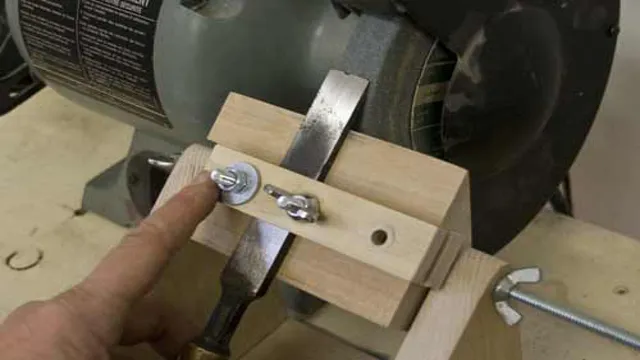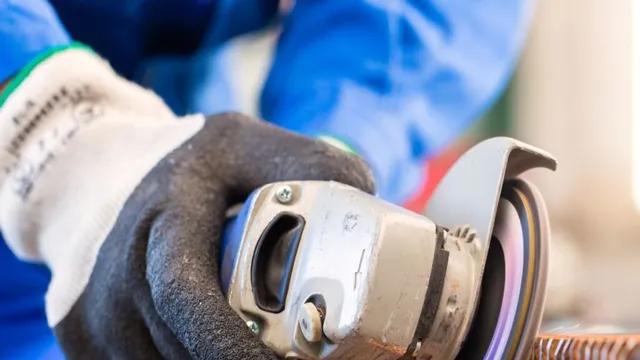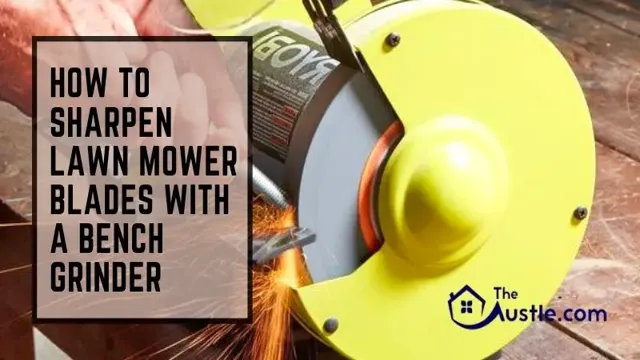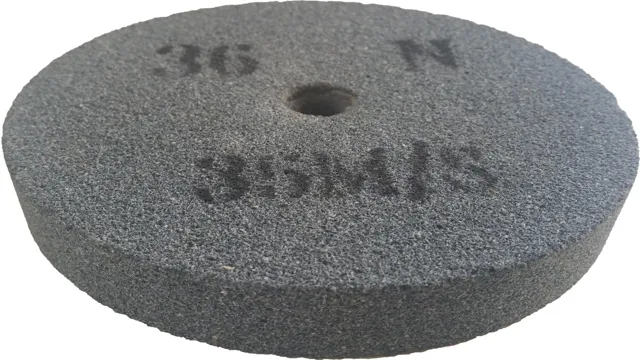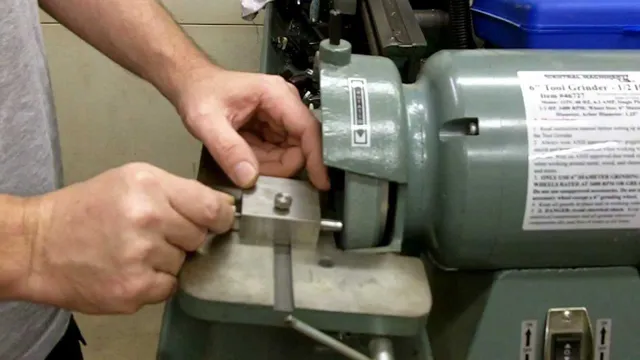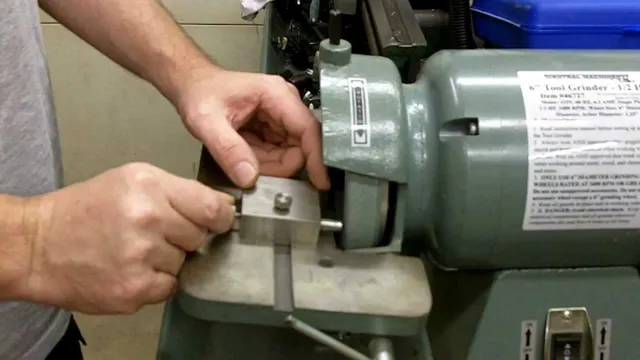How to Choose a Bench Grinder in 2021: Ultimate Guide for DIY Enthusiasts

Bench grinders are essential tools in any workshop. They are versatile and can be used to sharpen, grind, and shape various tools and objects. Whether you are a professional or a DIY enthusiast, a bench grinder can help you achieve your goals.
However, with so many bench grinders on the market, choosing the right one can be a daunting task. How do you know which one to choose? In this article, we will provide you with some tips on how to choose a bench grinder that suits your needs.
Consider Your Grinding Needs
When it comes to choosing a bench grinder, it’s essential to consider your grinding needs carefully. Different grinders are designed for different purposes, ranging from DIY projects to professional-grade industrial work. The first step is to assess the type of work you plan to undertake and the materials you’ll be grinding.
Factors such as the size of the grinder, the type of wheels, and the horsepower of the motor all play a crucial role in determining its suitability for your specific needs. For example, if you plan to work with harder materials, you’ll need a grinder with a high-speed capacity and a durable wheel. On the other hand, a lower power grinder might be more suitable for softer materials and lighter workloads.
By considering your specific grinding needs and doing your research, you can choose a bench grinder that will meet your expectations and deliver the desired results.
What type of materials will you be grinding?
Grinding materials require certain considerations before purchasing a grinding machine. When choosing a grinding machine, it’s essential to consider the type of materials to be ground. Are they tough, hard materials like metal, or soft as powder-like materials like sugar? The answer to this question will guide you in choosing the right grinding machine best suited for the job.
Each material requires a specific machine to ensure efficiency and minimize wear and tear. For instance, dry, brittle, or coarse materials require high-speed crushers that can operate with minimal heat generation. On the other hand, sticky or greasy materials necessitate a machine with a capacity to control temperature and humidity levels.
Overall, understanding the type of materials to be ground is crucial in choosing the correct machine that will enhance optimal performance while ensuring durability and longevity.
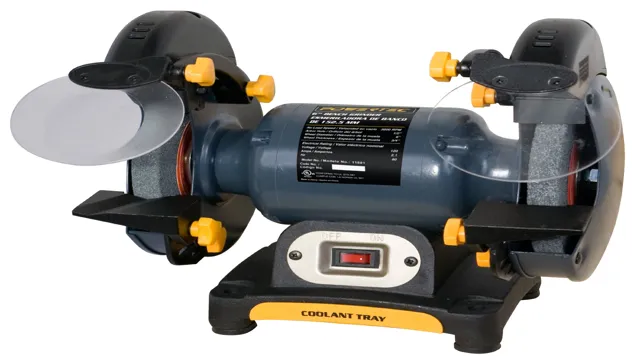
How often will you be using the grinder?
If you’re in the market for a grinder, one of the first things to consider is how often you’ll be using it. Are you a hardcore coffee lover who grinds beans multiple times a day, or do you just need a grinder for occasional use? Do you plan on grinding spices as well? These factors can all impact the type of grinder you need. If you’re someone who grinds coffee every day, for example, you’ll want to invest in a higher-end grinder that can handle daily use and preserve the flavor of your coffee beans.
On the other hand, if you only need a grinder for the occasional spice blend or to grind coffee once in a while, a cheaper, simpler model might suffice. Be honest with yourself about your grinding needs to find a grinder that meets them without breaking the bank.
What size of grinder do you need?
When it comes to choosing the right size of grinder, your grinding needs are the key factor to consider. If you grind coffee for a small household or office, a small-sized grinder would suffice. However, if you need to grind large quantities of beans daily, a larger grinder would be more appropriate.
Additionally, if you are a coffee enthusiast or a café owner, you should opt for a professional-grade grinder that can handle high volumes of beans. It’s essential to remember that the size of the grinder also affects the grind consistency. A smaller grinder may produce inconsistent grinds, whereas a larger model ensures that each grind is uniform.
The key takeaway is to assess your needs and then invest in a grinder that can effectively meet them. In short, when shopping for a grinder, size matters, but it’s not the most crucial factor; your grinding needs should be the top priority.
Look for Key Features
When choosing a bench grinder, it is important to consider key features that will suit your needs. One important feature to look for is the type of wheel that the grinder has. Grinding wheels come in different materials such as aluminum oxide, silicon carbide, and ceramic.
Each material has its own advantages and disadvantages, so it’s important to choose the right one for your project. Additionally, consider the size of the wheel and the power of the motor. A larger wheel can handle bigger jobs, while a more powerful motor will make the grinding process smoother and more efficient.
Another factor to consider is the speed of the grinder, as slower speeds are better for precision work while higher speeds are better for heavy-duty grinding. Finally, be sure to look for safety features such as eye shields and spark arresters to ensure a safe and comfortable grinding experience. By considering these key features, you can choose a bench grinder that will meet your needs and provide excellent results.
Power and speed
When it comes to choosing the right power tool, power and speed are crucial elements to consider. A powerful tool can make quick work of tough materials, while a speedy tool can save time and effort. Look for key features such as wattage and RPM that can indicate the power and speed capabilities of the tool.
Higher wattage generally means more power, while a higher RPM can indicate faster speeds. However, it’s important to ensure that the tool is designed to handle the power and speed levels you need for your specific project. Keep in mind that a tool that is too powerful or too fast for your needs can be dangerous and difficult to control.
Ultimately, finding the right balance of power and speed for your project can help you work efficiently and achieve the results you desire.
Wheel size and material
When choosing a wheelchair, the wheel size and material are two key features that you should consider. Wheel size affects maneuverability and speed, especially when navigating around tight spaces or outdoor terrain. Smaller wheels are generally better for indoor use, as they offer more agility, while larger wheels are better for outdoor use, as they provide more stability and can better handle bumps and uneven terrain.
The material of the wheels can also impact performance and durability. Rubber or polyurethane tires are common choices as they provide a smooth ride and have good shock absorption. However, some users may prefer pneumatic (air-filled) tires for outdoor use as they offer greater traction and shock absorption on rough surfaces.
Ultimately, it’s important to choose wheels that are suitable for your specific needs and preferences, so you can move around with ease and comfort.
Ease of use and maintenance
When looking for an electrical appliance, ease of use and maintenance are crucial factors. It’s essential to look for key features that simplify maintenance and ensure ease of use. Some of these features may include a clear user manual, straightforward controls, and easy-to-access components.
With a clear user manual, you won’t have to fumble around in the dark trying to figure out how to operate the appliance. Straightforward controls make it easy to navigate the appliance’s settings, while easy-to-access components simplify maintenance, allowing you to perform necessary repairs with ease. Additionally, appliances that are easy to clean contribute to both ease of use and maintenance.
Look for appliances that don’t require complex cleaning procedures or difficult-to-reach areas. With features like these, you can enjoy your appliance’s benefits without feeling overwhelmed by complicated maintenance procedures.
Check for Safety Features
When choosing a bench grinder, safety should be your top priority. You want to ensure that the grinder you choose includes safety features that will protect you from injury or accidents. Look for grinders that have protective eye shields, spark deflectors, and tool rests.
The eye shields protect you from flying debris, while spark deflectors help prevent sparks from causing fires. The tool rest keeps your hands protected while guiding the material you are grinding. You should also make sure the grinder has a safety on/off switch to prevent it from accidentally turning on.
Don’t compromise on safety when choosing a bench grinder, it’s better to invest in a high-quality model that will keep you safe while you work. With this in mind, always choose a bench grinder with safety features that can give you peace of mind.
Eye shields and spark deflectors
When it comes to welding, safety should always be a top priority. Eye shields and spark deflectors are two safety features that should be checked for before beginning any welding project. Eye shields protect the eyes from dangerous welding arcs and flashes that can cause temporary or even permanent damage to the eyes.
Spark deflectors, on the other hand, are designed to keep sparks from flying out and potentially causing a fire or other hazards. Checking for these safety features before starting any welding project can help prevent accidents and injuries from occurring. Don’t take any chances when it comes to your safety – always double check for eye shields and spark deflectors before beginning any welding project.
Braking system
When it comes to ensuring your safety on the road, it is crucial to check the braking system before driving. The braking system is an essential safety feature that helps you stop the vehicle quickly and avoid accidents. It comprises of brake pads, rotors, calipers, and brake fluid.
Regularly checking the braking system is advisable to identify any warning signs of malfunction such as squeaky brakes or vibrating steering. It is also essential to look out for any leaks or low brake fluid levels that could cause a sudden brake failure. Remember, neglecting the braking system can result in unimaginable consequences.
Therefore, routinely checking the brake system can keep you safe and prevent tragedies on the road.
Compare Brands and Prices
When it comes to selecting the right bench grinder for your needs, it’s important to compare different brands and prices to ensure you’re getting the best value for your money. Start by researching the top brands in the market and reading reviews from customers who have already purchased and used these products. This will give you a good idea of the quality and performance of each brand, as well as any potential pros and cons.
Pay attention to features such as the motor power, wheel size, and safety features to determine which bench grinder is best suited to your specific needs. Once you have a shortlist of potential options, compare their prices and warranty terms to make an informed decision. While it may be tempting to opt for the cheapest option, keep in mind that investing in a high-quality bench grinder can save you a lot of money in the long run by reducing maintenance costs and improving efficiency.
Whether you’re a DIY enthusiast or a professional workshop owner, taking the time to choose the right bench grinder can help you achieve your goals and get the job done right.
Research reputable brands with good customer reviews
When shopping for a new product, it’s important to research the different brands available and compare their prices. But it’s not enough to just look at the price tag and make a decision. You should also take some time to find reputable brands with good customer reviews.
This will give you an idea of the quality of the product and the level of satisfaction that other customers have experienced. By comparing brands and prices, you can make an informed decision and choose the product that best fits your needs and budget. For instance, let’s say you’re looking to buy a new laptop.
You’ll likely find many options available with different specs and prices. While it might be tempting to go for the cheapest option, you should also consider the brand’s reputation and customer reviews. A laptop from a well-known brand with positive reviews will likely outlast a cheaper one with negative feedback.
Another thing to consider is that a higher price tag doesn’t always equate to better quality. Some brands may charge more simply because of their name or marketing tactics. So, it’s important to look beyond price and do your research to find a reliable brand that will offer a quality product at a fair price.
Overall, comparing brands and prices is an essential part of making a smart purchase. By doing your research and finding a reputable brand with good customer reviews, you can ensure that you get a product that will meet your needs and expectations.
Compare prices on different models from different retailers
When it comes to purchasing electronic devices, it’s natural to want to get the best deal. That’s why it’s important to compare prices from different retailers and brands. By comparing prices, you can get the best value for your money and ensure that you’re not overpaying for a product.
Additionally, you can compare different models from the same brand and see which one offers the features you need while still staying within your budget. Thanks to the internet, comparison shopping is easier than ever. You can quickly and easily compare prices from different retailers, such as Amazon or Best Buy, and even check out prices from manufacturers directly.
This will help you make an informed decision and get the best deal on the device you want to purchase. So, next time you’re in the market for an electronic device, be sure to compare prices from different brands and retailers to get the best value for your money.
Final Thoughts and Recommendations
When it comes to choosing a bench grinder, there are a few things to consider to ensure you get the right one for your needs. First, decide on the size of the grinder that is appropriate for the job at hand. If you’re working with small items and precision work, a smaller grinder may be best.
Next, think about the speed and horsepower of the grinder you need. The higher the horsepower, the more power you’ll have, but the faster the speed, the more precision you’ll lose. Additionally, consider the type of wheels the grinder has and whether they are appropriate for the tasks you’ll be performing.
Finally, think about the overall quality and durability of the grinder. It’s better to spend a little more money upfront on a high-quality grinder than to have to replace a cheaper, lower quality one down the road. By considering all of these factors, you’ll be able to choose the best bench grinder for your needs.
Conclusion
In conclusion, choosing a bench grinder is no laughing matter. It requires careful consideration and the ability to differentiate between a hunk of junk and a high-performing machine. When selecting a bench grinder, make sure to take into account the size of the wheels, the power of the motor, and the durability of the construction.
And if all else fails, remember the words of the wise philosopher Ron Swanson: “Never half-ass two things. Whole-ass one thing.” So go ahead and whole-ass your bench grinder selection process, and you won’t be disappointed with the end result.
FAQs
What factors should I consider when choosing a bench grinder?
When choosing a bench grinder, consider the size of the wheel, power of the motor, type of abrasive wheels, and the warranty.
How much does a good bench grinder cost?
The price of a good bench grinder can vary greatly depending on the brand and features. You can expect to pay anywhere from $50 to $500 or more.
What are some safety precautions I should take when using a bench grinder?
Always wear eye and face protection, use the grinder in a well-ventilated area, and make sure the grinder is securely mounted to a stable surface.
Can I use a bench grinder to sharpen tools?
Yes, a bench grinder can be used to sharpen knives, chisels, and other tools. However, be sure to use the appropriate grinding wheel for the job.
How do I clean and maintain my bench grinder?
Regularly clean the grinder by wiping it down with a dry cloth and removing any debris from the wheel guards. Lubricate moving parts as needed, and replace worn or damaged parts promptly.
What are the different types of grinding wheels available for a bench grinder?
Grinding wheels are available in various materials, such as aluminum oxide, silicon carbide, and diamond. They also come in different grit sizes for various levels of finish.
What are some good brands of bench grinders?
Some popular brands of bench grinders include DeWalt, Delta, Jet, and Baldor.

